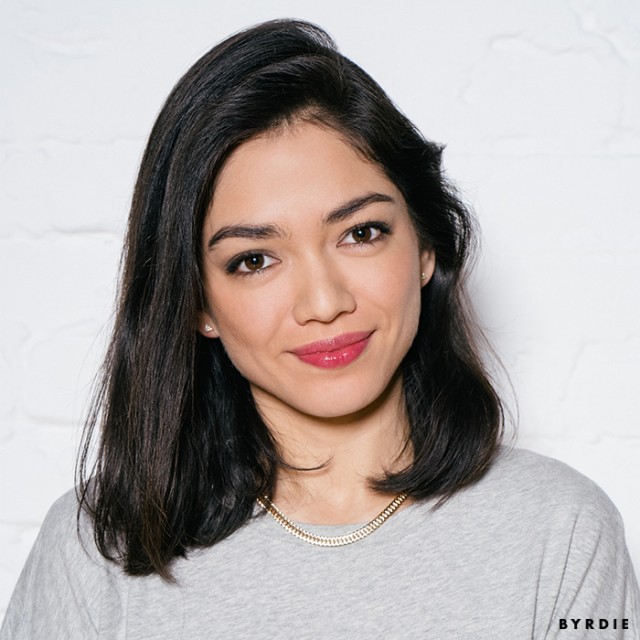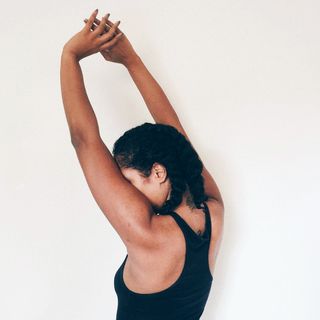Which of These 4 Meditation Techniques Best Suits Your Personality?


At the start of 2017, I joined a yoga and meditation studio. Far from a seasoned yogi, over past few weeks, I've become reacquainted with the basics like Cat/Cow and Warrior 2—as advanced as I currently get without relying on peripherals. It was about two weeks in that I worked up the courage to take my first meditation class—more daunting and possibly demanding (to me) than an hour of vinyasa. A complete beginner to the practice (and avid overthinker), I came to the class with many questions on my mind.
Despite my first failed attempt at meditation—said questions buzzed about in my mind for the 45-minute duration—I was not deterred. I know we can all use a little more balance in our lives, and meditation is known to be an effective way to center oneself and promote well-being. I'm determined to make it work.
One of the many thoughts I had while trying to think of nothing was whether this was the right method for me. With recent talk of "finding the right workout plan for your personality," I wondered if meditation worked in a similar manner. Were there certain techniques more suited to particular personality types? Should one explore different options before closing their eyes and committing?
The best source to tap for such knowledge was the class instructor, Asher Luzzatto, who leads all the meditation classes at Hyperslow. I asked him all the questions (that popped into my mind while I was attempting to not think), and he broke down the basics for meditation beginners and explained how to determine which technique is best for you.
Keep scrolling to discover everything you need to know when beginning meditation and the kind you should consider, according to your personality type.
Meditation is a practice, and a practice takes commitment.
If someone is new to meditation, what should they know before taking up the practice?
Asher Luzzatto: Meditation is a practice, and a practice takes commitment. Real commitment. Usually, there are not any discernible benefits during the initial stages of a meditation practice. The initial stages can be defined by a wandering mind, legs falling asleep, back pain, and unwanted feelings or emotions. But, like any practice, the initial stages are temporary. Over time, the seemingly negative experiences dissipate and the result is a clear mind, balanced emotions, and a deep and spiritual existence.
Are there different types of meditation?
There are many different kinds of meditation. Probably thousands. I believe that many of these meditation practices are marketing tools. Different practitioners over the course of history have tried to accumulate followers by preaching "new," "different," and "innovative" techniques. This is no different than Coca-Cola selling you its brand of soda and cautioning you against the Pepsi brand of soda. While the two soda brands might taste different and appeal to different people, they are both cancerous carbonated sugar water. Try different methods. See what works for you. But know, ultimately, the basis of all meditation is stillness and breath.
Meditation is and can be for anyone. We all must begin somewhere.
How much do you feel one's personality type plays into how they should approach meditation? How might personality affect one's practice?
Personality is often used as an excuse for not meditating. I often hear people say "I'm type A—meditation is not for me" or "I think too much to meditate." Imagine someone who has not showered (and has the financial and physical ability to shower) saying "I already smell; I don't need to shower." If you really think about that, you'll understand what I mean. Meditation is and can be for anyone. We all must begin somewhere. Fortunately or unfortunately, like anything in life, some might have an advantage based on life circumstance and experience.
How should someone determine what meditation technique is best for them?
Start with a basic, breath-based meditation. That is where I started, and that is likely where I will end. I have found that the most basic method is the best for me. That might not be the case for everyone, but it's a great place to start. If it's not working (and please give it at least a few weeks), then do some research online to find a practice that might be better suited for you. Just avoid anything and anyone that requires you to be reliant on that thing or that person in order to achieve a happier, healthier life. Your mind contains all the power necessary to heal yourself.
On another note, I do believe that a meditation practice can benefit from a breathwork practice. Like meditation, breathwork takes many, many different forms and is practiced differently all around the world, but at its core, breathwork is a breath workout and uses the breath to lighten body and mind. Breathwork is an amazing way of achieving a meditative state without the long, arduous process of achieving that state through meditation. Breathwork is like a drug (the healthiest and most natural one on earth), but meditation is the reality. Do both, and a very deep state of happiness and contentedness will open up to you.
Below is suggested breathwork based on your personality type.
Wim Hof
Named after the Dutchman known to run marathons barefoot across snow, the Win Hof method is a powerful form of meditation that allows the practitioner to go deep inside the mind. It utilizes rounds of power breathing—deep, rhythmic inhales and exhales—with intervals of holding the breath. Luzzatto recommends this method for extroverts and thrill-seeking individuals who enjoy spontaneity.
Kundalini
This method uses deep breathing to balance energy and reduce stress. Luzzatto recommends this approach for introverts, individuals who enjoy goal-setting, and those who are more cerebral.
Breath of Fire
This breathwork uses rhythmic breathing with shallow sniffing-like breaths and equal emphasis on the inhale and exhale. With its controlled, synchronized nature, it's no surprise that Luzzatto says it's preferable for those who are type A and competitive.
Hyperslow Method
The breathwork Luzzatto teaches at his studio is ideal for creative types and also those who are easily stressed and worry too much. During the practice, he had us begin with active breaths before reducing to a slowed breath and then eventually picking up the pace again toward the end of the meditation.
What's your meditation experience? Hopefully no matter your level, there's been something here for you.
Disclaimer
This article is provided for informational purposes only and is not intended to be used in the place of advice of your physician or other medical professionals. You should always consult with your doctor or healthcare provider first with any health-related questions.

My mom circa 1975
Who are your 5 favorite people to follow on Twitter/Instagram?@fingermonkey @katefoley @idea.ltd @designmilk @overheardla
What's the fashion essential you can’t live without?My black-on-black Birkenstocks. If that even counts.
What's your desert island album?Radiohead's OK Computer. Or maybe Pablo Honey for something a bit more uplifting if I'm going to be stuck by myself.
What's your favorite WhoWhatWear.com story? California Dreaming with Poppy Delevingne-
 The Mindfulness Tips to Help You Keep Your Cool Over the Holidays
The Mindfulness Tips to Help You Keep Your Cool Over the HolidaysDon't lose your head.
By Sarah Yang
-
 Social Media Is My Job—These Are the 5 Ways I Practice Digital Wellness
Social Media Is My Job—These Are the 5 Ways I Practice Digital WellnessWithout feeling totally disconnected.
By Stephanie Limiti
-
 From Instant Stress Relief to Better Focus: 7 Ways Exercise Benefits Your Mind
From Instant Stress Relief to Better Focus: 7 Ways Exercise Benefits Your MindThe gym isn't looking so bad now, is it?
By Victoria Hoff
-
 How to Know If It's Anxiety or Just Stress
How to Know If It's Anxiety or Just StressThey're not the same thing.
By Victoria Hoff
-
 How to Detox From Social Media Without Quitting Cold Turkey
How to Detox From Social Media Without Quitting Cold TurkeyIt doesn't have to be all or nothing.
By Lauren Levinson
-
 Do You Need a Judgment Detox?
Do You Need a Judgment Detox?We've all been there.
By Lauren Levinson
-
 What Unthinkable Loss Taught Me About the "Perfect" Family
What Unthinkable Loss Taught Me About the "Perfect" Family"There are no 'right' paths—just paths."
By Josephine Atluri
-
 It's Not Easy, But I'm Learning to Free Myself From My Perfectionism
It's Not Easy, But I'm Learning to Free Myself From My Perfectionism"Something had to give."
By Jessica Montalvo

